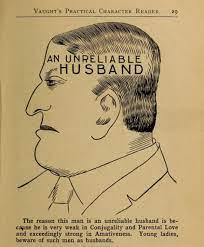Sumerian cuneiform, Egyptian hieroglyphics, manuscripts in Aramaic, Arabic, and Hebrew, the illuminated Christian Gospels, the Talmud, the Koran—with these forms and collections of writing came the expectation that a person would read them out loud and would, in a manner of speaking, conjure their reality. In his book A History of Reading, Alberto Manguel points out that Aramaic and Hebrew, the “primordial” languages of the Bible, draw no distinction between reading and speaking. The same word stands for both. Buddhism and Hinduism also give an exalted place to the spoken word.
The opening words of The Odyssey—“Sing in me, Muse, and through me tell the story”—make this clear: The storyteller is acknowledging at the start that the tale he tells is not his own, and that he hopes for divine assistance in telling it well.
I think it is pretty interesting that people engaged with reading this way. The author of this article notes that it becomes a living story. This also had the benefit of reaching persons that could not read. I wonder if the content was remembered more vividly through both seeing and hearing the words.
[off topic?]
Back in the day, cigar makers would hire a someone to read the newspapers out loud during working hours. Sometimes the staff would choose different books/magazines.
https://www.holts.com/clubhouse/cigar-culture/cigar-factory-lectors
The recent German book "the door to door bookstore" (original "Der Buchspazierer") actually has a scene involving one of these orators.
I had to re-read a whole section of the book because I thought for sure I was misunderstanding part of the German text. But, nope.
Great feel good book for people who like books, btw.
How Can I Help You, by Laura Sims. Two librarians in a deadly game of cat and mouse. Great feel good book for people who like libraries
That’s interesting. I suppose it’s similar to having the radio or TV on the background at work.
I may be wrong, but I remember a scene in Robert Redford's movie 'Havana' where the cigar makers are listening to Marx, until the owner walks in and the reader switches to a gossip magazine.
Silent reading is actually a shockingly recent invention. Because the letters "make sounds", the natural way to process a phonetic alphabet is to make the sounds of the letters as you read them and listen to yourself speaking the text. This goes on way later than many people realize. Being able to do silent reading at all was still a pretty remarkable skill in the time of Shakespeare. Being unable to read something without speaking the words was common probably well into the 19th century. Actually, as someone who works in education I can tell you that I will still recommend kids to read things out loud if they find something difficult. It's what phonetic writing languages were designed for, and it increases accuracy and comprehension.
We should go back to this. I want to ride on a subway with everyone shouting "Meet hot singles in your area! Improve facial skin with one simple trick! Secret and confidential. Eyes only!"

